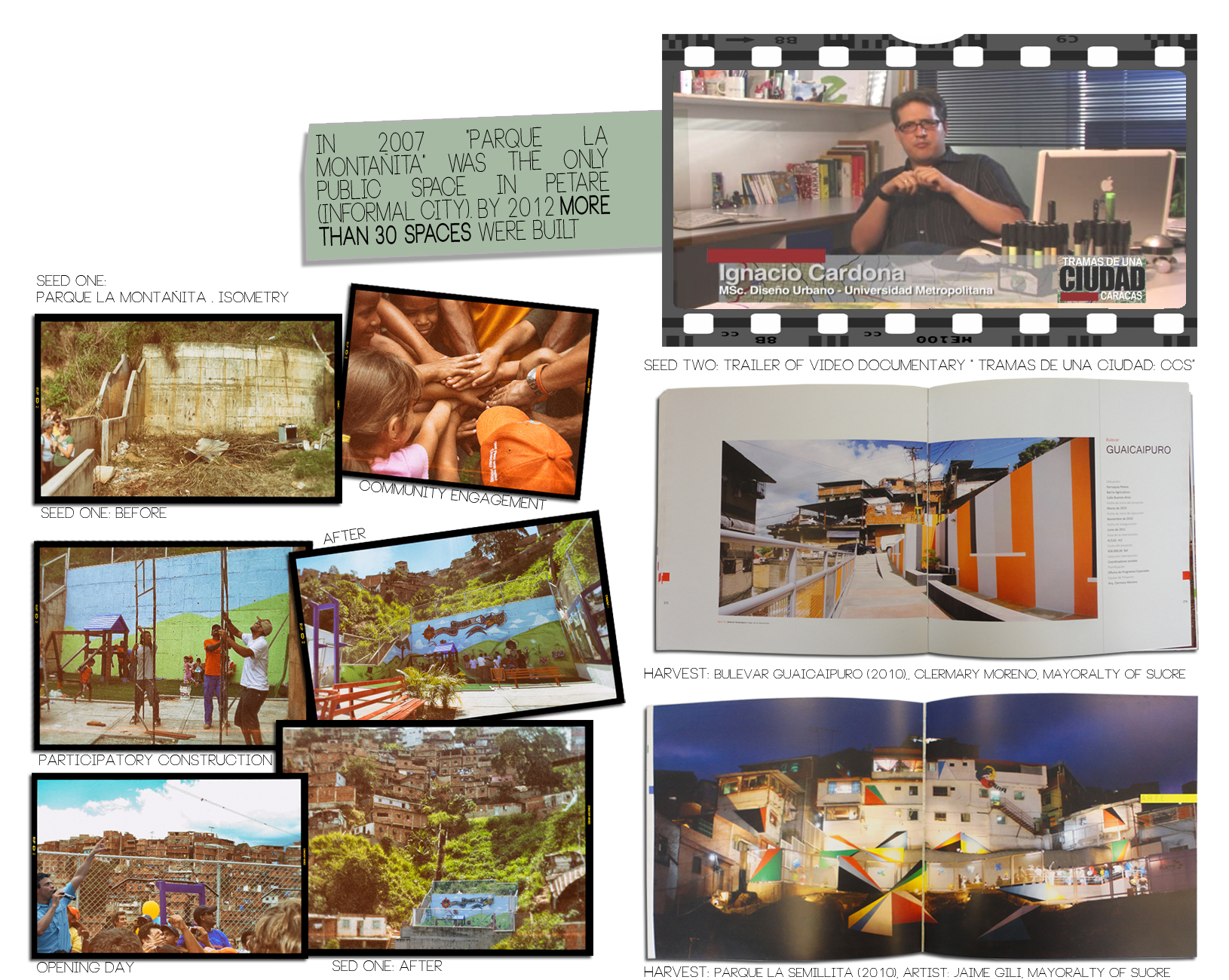Research
Innovation for the Integration of Self-Produced Environments | AC Red Urbana Ciudadana
2007-2010
Institutions:
* Asociación Red Urbana Ciudadana
A nonprofit association dedicated to managing urban projects in underprivileged environments
Leader:
* Ignacio Cardona (PI 60%)
AC Members (Co-PI, 5% each):
* Enrique Fernández-Shaw / María M. Herrera-Luque / Alberto Manrique / Ignacio Cardona / Marco Negrón / Leopoldo Provenzali / Santiago Fernández / Carlos Ciordia
Students at Universidad Simón Bolívar:
* Laura Bongiovanni / Martina Centeno / Oriana De Lucia / Julia Mañá / Rebeca Peraza / Kharina Trujillo
Producers of the video documentary:
* Edmundo Ramos Fonseca, Jorge Domínguez Dubuc, Roberto Puchetti, Ignacio Cardona
Book Editor:
* Alcaldía de Sucre
* Fundación Espacio
*
This is an Engaged Scholarship of Teaching developed to integrate four main stakeholders for the intervention of Self-Produced Environments: local government, private sector, universities, and community members. This is a pedagogic project to collaboratively define land policies for a regional-wide improvement of underprivileged communities.
The project began with a public grant awarded by the Majority of Chacao, which served to develop two projects. First, the Video-Documentary “Networks of a City: Caracas (Tramas de una Ciudad: Caracas),” which served as a tool to discuss the importance of including underserved sectors of the city on the urban map. Second, the built-design project “Parque La Montañita” in Petare through Participatory Design Workshops with architecture students of Universidad Simón Bolívar.
The second project became a reference for a new and innovative perspective on public interventions of Self-Produced Environments. One year Later, we served as a consultant to replicate the idea in an agreement between the Majority of Sucre and Universidad Simón Bolívar (2008-2012), a program that built 30 public spaces in Petare, the denser self-produced neighborhood in Latin America.
In summary, the whole research project was envisioned as a tool to educate the entire society about the importance of integrating underprivileged communities into urban dynamics.
